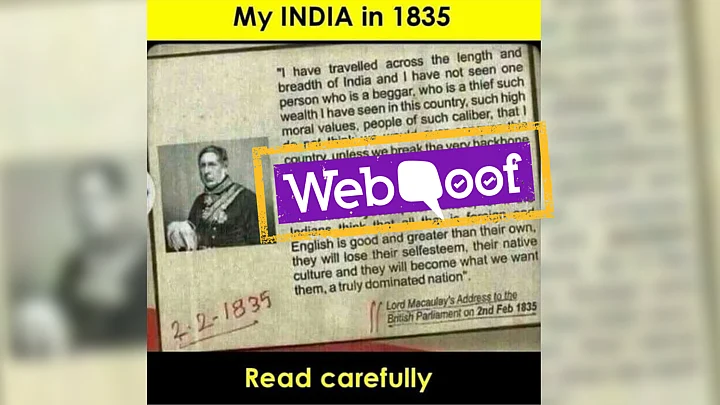CLAIM
A message doing the rounds on social media claims that Lord Macaulay, while addressing the British Parliament on 2 February 1835, deliberated on how India can be conquered if it replaces its “old and ancient education system”.
Several social media users have shared the aforementioned viral post on Facebook, Instagram and Twitter.
TRUE OR FALSE?
The claims made in the viral post are false.
Firstly, the post ascertains that Lord Macaulay was in the British Parliament on 2 February 1835, but he was actually in Calcutta on the specified day. Macaulay came to Calcutta in December 1834 and worked in the Supreme Council of India for five years. TB Macaulay’s ‘Minute on Education’ address dated 2 February 1835 further verifies that he had not addressed the British Parliament on that day.
Secondly, the content of the viral post is entirely different from his ‘Minute on Education’ address. Phrases such as, “I have travelled across the length and breadth of India,” mentioned in the viral post are not part of the ‘Minute’ address. Also, spelling mistakes like ‘selfesteem’ are unusual for a literary stalwart like Macaulay.
The Wire had previously busted the hoax on 19 February 2017.
WHO WAS LORD MACAULAY?
Thomas Babington Macaulay was a Whig politician, historian and poet. He was famous for History of England. After completing his tenure in the Supreme Council of India, he returned to England in 1838. In 1839, he became the Secretary for War. Further, he served as the Paymaster General in 1846 when Lord John Russell was declared the prime minister.
(Not convinced of a story you came across on social media and want it verified? Send us the details at WebQoof@TheQuint.com and we'll fact-check it for you. You can also read all our fact-checked stories here.)
